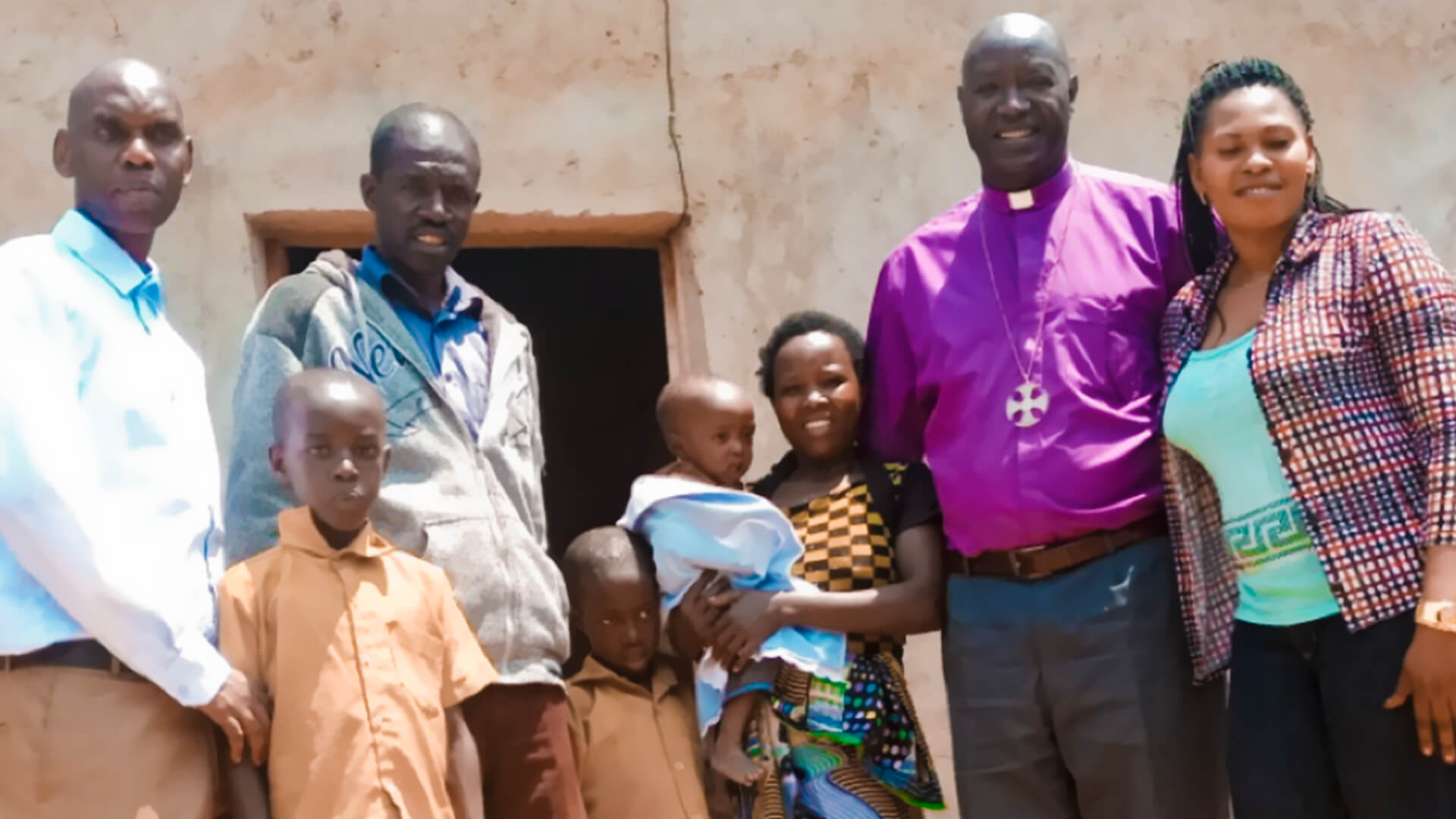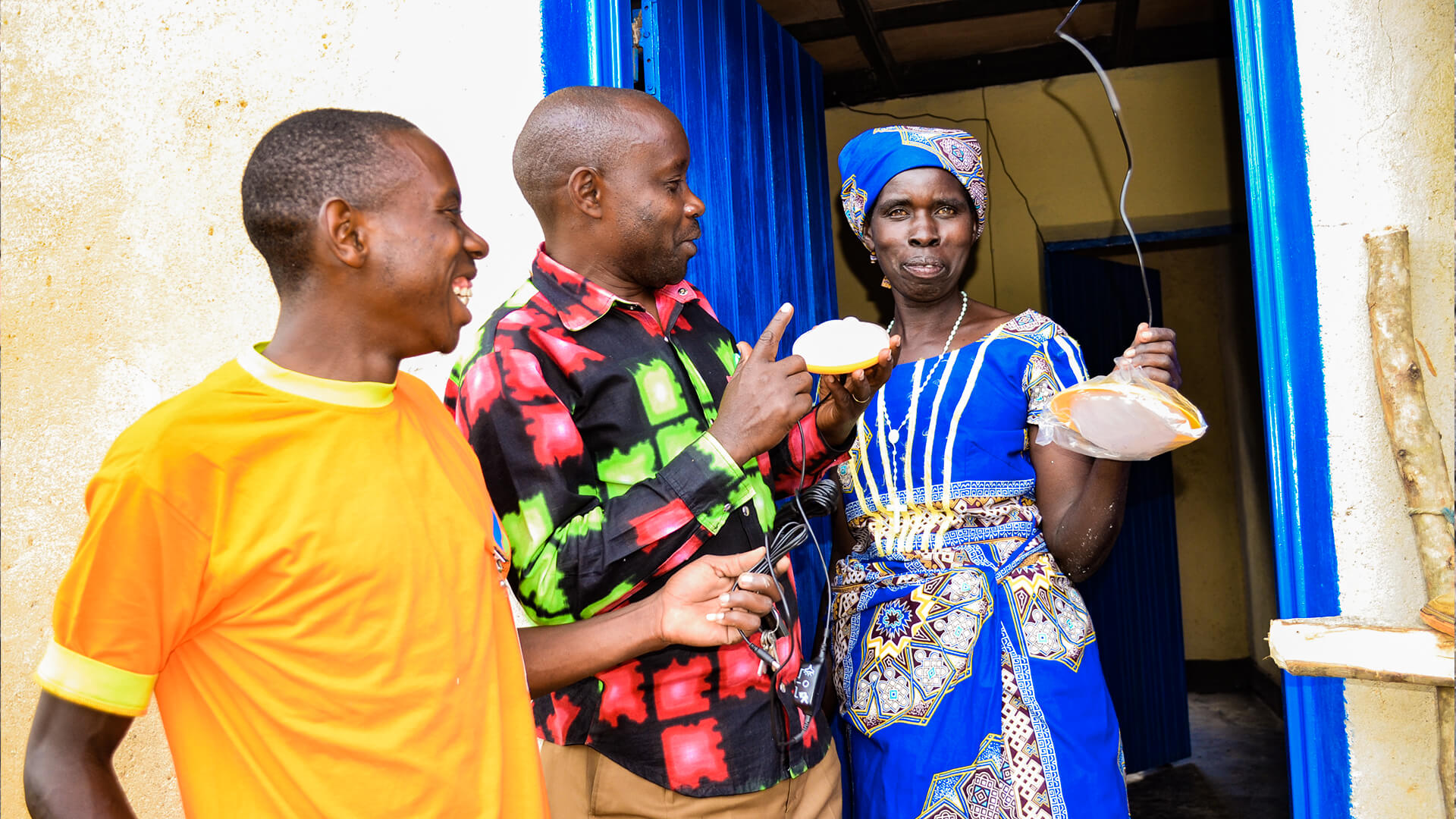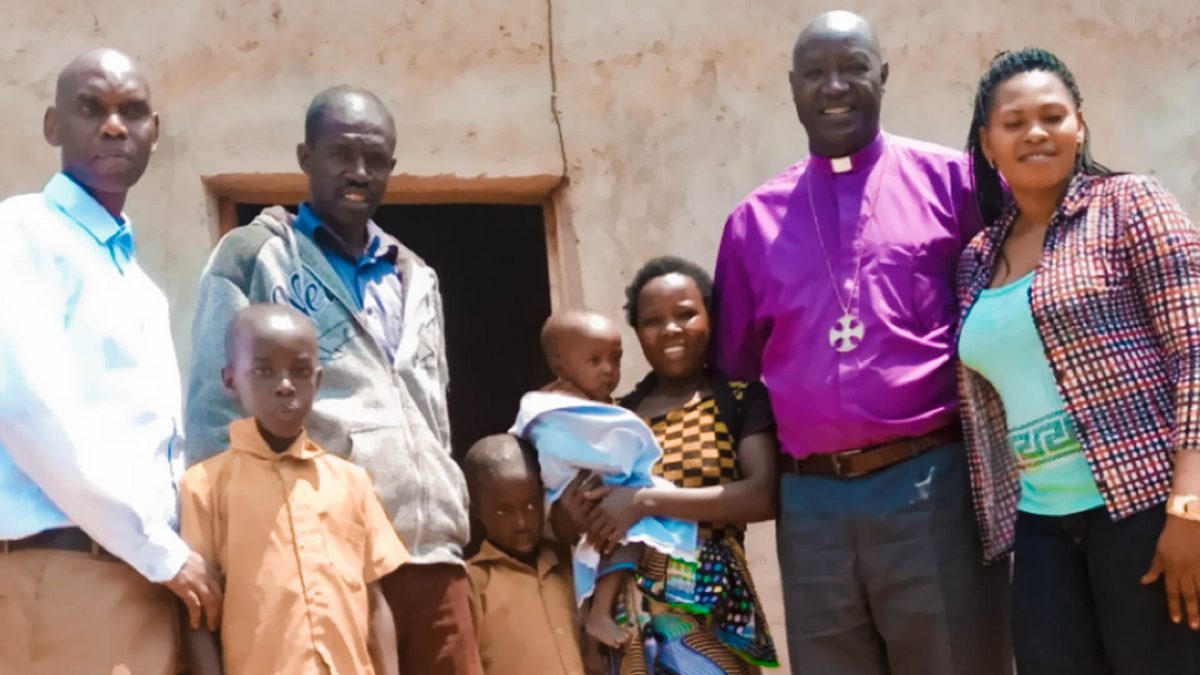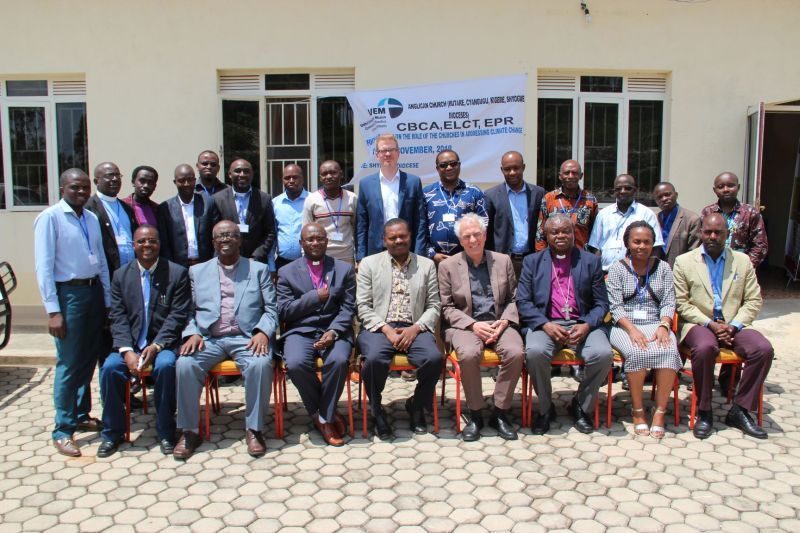
The first beneficiaries of the Solar Home Systems Project in the Gisagara district, Mrs. Uwimana and her husband, Mr. Theogéne Bathege with their children.
Theogènes family and some of your neighbours will be the first beneficiaries of the solar home system in Rwanda. So far, they have been among the 7 million people who are not yet connected to the country’s national energy grid. The family is happy to be able to light their homes for the first time, charge their mobile phones and run a small digital radio. At the same time, they significantly reduce their monthly household expenses through the use of solar energy.
To mark the inauguration of the project for supplying ‘Solar Home Systems’ in Off-grid areas by Hon mayor of Muhanga district Ms Beatrice Uwamariya and UEM Executive Secretary for Africa(1), Rev Dr John Wesley Kabango, a small ceremony was held at Kivumu village, on the 2nd of August 2018. About two hundred villagers, government officials and representatives from the two project implementing Churches as well as some staff members of RDIS organisation and Ignite Power Rwanda company Ltd attended this colourful event.
The Anglican Church of Rwanda (EAR), dioceses of Butare, Cyangugu, Kigeme and Shyogwe via the Rural Development Inter-diocesan Service (RDIS) in collaboration with the Presbyterian Church of Rwanda (EPR) and One for the Climate were jointly implementing a pilot phase of a Project for Supplying ‘Solar Home Systems’ in Off-grid areas in their respective Church areas. The project started with a pilot phase, whereby 300 households get Solar Home System kits installed in their homes.
In most households in Rwanda kerosene still takes the place of solar energy. Kerosene is expensive and its use releases significant amounts of harmful soot. According to government information (Energy Group Report August 2017), the electrification rate in Rwanda is 41%. While it reaches 72% in urban areas, it is only 9% in rural areas. So only a small part of the rural population has access to the electricity grid. Another problem is the limited financing possibilities for off-grid companies.
The pilot project is funded by the United Evangelical Mission (VEM) headquartered in Wuppertal. It aims to break new ground in the financing of off-grid solutions. The financing model underlying the Solar Home System project was developed in Germany by the One-for-the-Climate (OftC) and the Ö-quadrat (Ö2) office. It allows SHS owners to use pay-as-you-go systems that make the use of SHS kits economical.
The selected SHS users are required to sign a special contract and will make a down payment amounting to 20% of the solar home system (21,200 RWF [about 21 €], whereby 16,000 RWF is a guarantee fund and 5,200RWF is a payment for the first month) and 23 monthly payments of 5,200 RWF to cover costs and to repay the loan.
The Solar Home System (SHS), which was chosen for this project is Sun King Home 120 for being most suitable for the pilot project in Rwanda. The product includes a lithium ion battery, 4 LED-lamps, a USB port for charging mobile phones, a digital radio, connection cables and a 12 Watt PV-Panel.
In most cases, the cost is lower than for charging cell phones or kerosene. The SHS project offers multiple benefits. By replacing kerosene with solar energy, it is not just a contribution to climate protection. The availability of electricity and light and the prevention of harmful soot emissions represent a milestone in improving the quality of life for the recipient families.

A little more then one year after the inauguration of the pilot project, by October 2019, all solar home systems have been are installed. Although every SHS kit makes a contribution to protecting the climate, for most families who have invested in SHS kits, completely different effects are particularly noteworthy. Solar energy has already significantly improved the lives of over 300 families, with an average of four to five members, in the rural areas of the country in several ways. School-age children and adolescents, for example, have light available for the first time after dark to read books and do homework, as Louise Niringiyimana (19 years old) from the village of Karubi reports:
“I’m in 12th grade. Before we got the Solar Home System at home, my sister Charlotte – who is in 9th grade – and I weren’t happy to live in a house with no light. When we did homework in the evenings, A battery operated flashlight was our only source of light. Today many things are different at home. Now we can prepare our assignments for school at any time, day or night. Even during the holiday season. In addition, we can search for updated information since we have a radio and follow different radio channels. We don’t spend any more money to buy batteries for the flashlights since we have a solar home system at home. In addition, with the SHS KIT we can charge our cell phones, illuminate our home. Furthermore, we can now sit together with our parents in the evening much longer and exchanging information.” The SHS-kits not only increase the educational opportunities of the children but also allow the families to invest the saved costs for kerosene, candles or batteries in other ways, as Claudine Uwizeyimana (29 years old) from the village of Gakoma emphasizes: “The important thing about the Solar Home Systems is that we now have light in our home. We no longer live in the dark – thanks to these kits. It helps us to charge our phones and our radio. This has drastically reduced our household expenses. For example this Money that we used to have to spend to buy kerosene and candles.”
These two selected voices represent the experience of numerous families wie spoke with. Everyone involved is happy about the feedback and the success of the project so far. It proves that common climate protection for people in the global north and south is possible through investments in renewable energies. Not only is it possible, but in this case it goes hand in hand with the elimination of energy poverty and constitutes an important step towards more social equity for the beneficiaries we serve. Last but not least, it shows how many positive secondary effects the commitment of all those involved in our pilot project has also produced in the areas of education, safety and health.
We would like to take this opportunity to express our special thanks to all the investors and cooperation partners who made this success possible. This applies in particular to the United Evangelical Mission, the Evangelical Church of Westphalia and the Development Service of the Anglican Church of Rwanda (RDIS).


